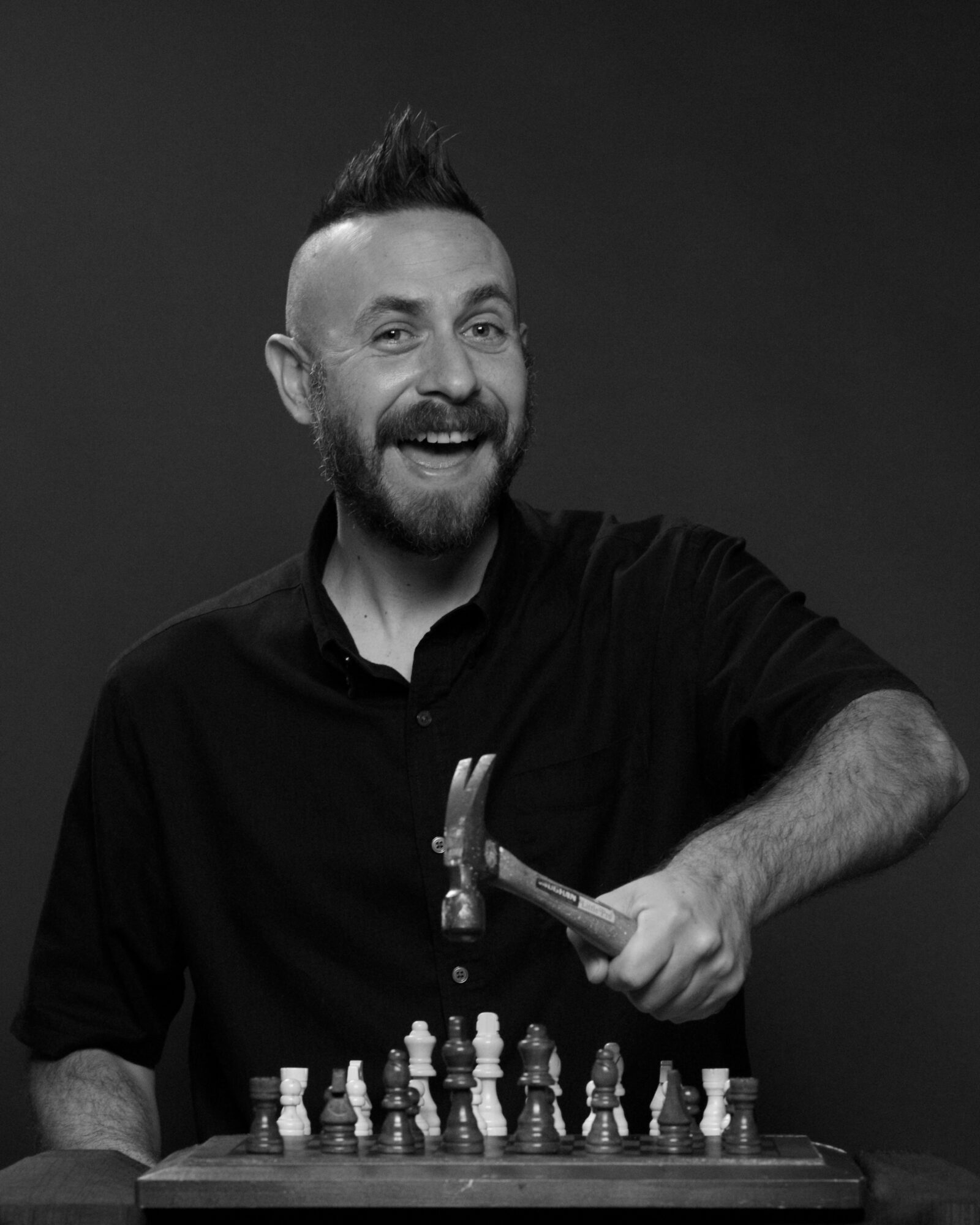

David A. Romero shared their story and experiences with us recently and you can find our conversation below.
David A., so good to connect and we’re excited to share your story and insights with our audience. There’s a ton to learn from your story, but let’s start with a warm up before we get into the heart of the interview. What is a normal day like for you right now?
This is my best schedule: I wake up around 8-8:30 am, check my messages, brew a cup of coffee, and get started with editing books for El Martillo Press. This includes proofreading, formatting, and sometimes doing cover design.
I toggle windows between editing and answering emails in order to keep my energy levels up. On a good day, I’m setting up events, doing a little social media, answering booking emails, answering questions authors have about their books, and engaging in interviews like this one.
At around 1 pm I change into workout clothes and go play basketball. I like playing in the middle of a hot Southern California day because there aren’t usually a lot of people out there. I’m just getting back into playing again, so I’m not ready to be running up and down the court with other players yet. After, a daily drill of shooting 100 freethrows and converting the misses into layups, I’m ready for a nap. Just kidding, I take a shower, make myself a mocktail and plunge right back into editing and answering emails/doing other stuff.
This goes on until about midnight and the next day repeats.
After dinner, I dedicate the later hours to sending out booking emails for myself as a professional spoken word artist. Currently, I’m doing poetry: being a publisher and a touring poet, full-time. For a few months, I was working on editing books all day and night, exclusively (I didn’t even take breaks to play basketball or get any other physical excercise). I was ridiculously productive during that stretch, but I wasn’t doing enough to focus on my physical health or my own performance career (which actually helps to fund my publishing).
There are a lot of days I break this routine. Some days to help family, others, to hang out with friends. A lot of days with friends, however, I lament how productive I could’ve been if I had stayed home.
I’ve become something of a workaholic.
Can you briefly introduce yourself and share what makes you or your brand unique?
I’m David A. Romero, co-founder and editor-in-chief of El Martillo Press. About three years ago, my best friend Matt Sedillo and I decided to create our own publishing company. We combined the images of the hammer and the laurel, signifiying that through our press we wanted to celebrate working people; especially Latine workers and writers.
Since then, we’ve published 18 books, including We Still Be: Poems & Performances by Paul S. Flores (Winner of the American Book Award 2024) and Paper Birds: Feather by Feather / Pájaros de papel: Pluma por pluma (Honorable Mention, Interational Latino Book Awards, 2024).
One of the reasons why Matt and I have had so much success as publishers is that we’re both grinders, but in separate ways. Matt is a natural-born salesman, he’s amazing to watch in action. Competely without fear or hestiation, we will approach anyone for a sale or to pitch them on collaborating on a project. He often refers to me as “the keyboard warrior” based on my ability to spend hours upon hours sending out booking emails, press releases and more. Obviously, I favor my approach, but I can’t argue with many of the results he’s had, including getting advance reviews from Danny Glover and Jane Fonda for a couple of our projects. This kind of attention helps to validate the work we do, and hopefully, draw press and financial support from larger donors so we can continue to publish working-class writers.
Two of my favorite projects that are currently in proofing stage right now, almost available for wide release, are My Older Brother, A Famous Rapper by Alyesha Wise and Anthology of Latino Plays by Herbert Siguenza. These books are so incredibly timely it makes my head spin. One is inspired by hip hop, the other by the plays of Shakespeare and Moliere, one is deadly serious, the other is laugh-out-loud funny, but both are extremely political and speak to issues like racism, assimilation, police brutality, prison abolition, immigration and imperialism. Alyesha is a slam legend who’s been featured on TV multiple times and Herbert is a founding member of Culture Clash. Both are committed to being a part of the Martillo familia. It’s heartening.
Thanks for sharing that. Would love to go back in time and hear about how your past might have impacted who you are today. Who taught you the most about work?
My father was the most hardworking person I have ever known, personally. As a Cal-Trans supervisor he was required to both do hard physical labor in the sun and rain as well as manage teams of people in an office. He often worked overtime; he came in to work, occasionally in the middle of the night, in the wake of callouts or tragic accidents on the freeway suffered by his co-workers. He worked in the yard or in the house, helped us with anything we needed, and coached basketball and soccer. I could never come close to having my father’s work ethic.
That being said, I owe a lot of skills and drive as an entrepreneur to my brother, whose voice echoes in my mind nearly every day. He and one of my sisters have chosen the road of being entrepreneurs for decades. I’ve worked for both of them (with all three of my siblings, actually!) but my brother was the one who taught me the most about being an entrepreneur. In a time in my life when I wasn’t getting a lot of opportunities (due to my own personal failings), my brother invited me to work for him for his sourcing company The Outsiders Creative, and for his sales company ICI Sales Consulting. During those years, I spent a lot of time databasing, researching potential sales contacts, sending out emails and even doing some pitches over the phone. We did this for multiple products and multiple clients. He often asked me to make websites for clients and to write sales copy for the websites and additional marketing materials. Just as important, or even more so, we occasionally went to various stores, conventions and swap meets to sell products. One of my brother’s phrases that always rings in my head, especially now when I go in with books to independent bookstores, asking them to be carried, is: “We just need to get our foot in the door.” Due to this mentality, I’ve been to foster a number of ongoing relationships with independent bookstores and even place a few books into local Barnes & Noble locations.
What did suffering teach you that success never could?
Suffering taught me humility and personal responsibility. It made me deeply reflect on the ways I had treated others throughout my 20s. I damaged property. I stole. I drove drunk. I fell asleep at the wheel. I almost killed myself and could’ve killed others. I was toxic in my relationships with women.
When I faced the consequences for my second DUI, and finally went into counseling, I had to face the terrible things I had done.
I’m really glad that I got sober before I started touring. As a professional spoken word artist, I’ve been featured on jumbotrons, walked by tv screens on college campuses playing my poetry videos, been asked to sign posters with my face on them, had my name printed on t-shirts and coffeemugs, performed on stages in front of hundreds of people for up to two hours, been hugged by fans, been told through teary-eyes that I changed their lives and more….
I’ve been fortunate enough as a poet to get a taste of the rockstar life.
However, all of this would’ve been more difficult to deal with while drinking and doing drugs. Substance abuse tended to heighten my feelings so superiority and inadequacy. Alcohol and drugs also helped to trigger my anger when situations didn’t go my way. I think that if I had toured on alcohol and drugs I would’ve done a lot of hurt to myself and others.
Touring is very lonely and it’s a lot of big shifts in emotion. It’s pressure and expectation followed by intense disappointment or elation, in turn followed by surprising silence and emptiness. I’ve seen people unable to handle it. I’ve seen people walk out of shows or cause problems before or after a show, some of them dead sober.
Without suffering, without my “rock bottom,” and sobriety, I would’ve never found the peace to enjoy the good moments as a poet, not hold onto the bad ones, and to be kind and accountable to others as possible.
I think our readers would appreciate hearing more about your values and what you think matters in life and career, etc. So our next question is along those lines. Is the public version of you the real you?
As a publisher, the real me isn’t as kind or as patient as the public version of me. El Martillo Press co-founder Matt Sedillo is always saying that I’m actually the meaner of the two of us, though he has the reputation for being ‘the mean one.’ I always tell him, “That’s because you’re mean in public. I’m mean in private.”
As a poet, the real me isn’t as exciting or filled with as much conviction as the public me. This has disappointed a number of fans and girlfriends.
Sometimes, I get a little worried that I’m not in touch enough with these parts of myself. That I’ve chosen a life of peace and contentment rather than of passion and conviction, but I think I surprised myself this summer when I started a petition and social media campaign on behfalf of my friend Ernesto Ayala after he had been unlawfully detained by ICE for protesting the harassment of day laborers. He inspired me to take action and I, along with many others he calls friends and familia, were also inspired to action. Sometimes I am the “activist” that Wikipedia says I am.
Okay, so before we go, let’s tackle one more area. What do you think people will most misunderstand about your legacy?
I think I’ve fallen into a dichotomy of being seen as either a comedic poet or a serious publisher.
As a poet, some of the poems I’m best known for are humourous poems like “My Name Is Romero,” “That’s a Wrap/Ode to the Burrito,” and “Cheese Enchiladas.” However, my poetry has run the gamut from thesis-driven political spoken word poems, “Open Letter to Donald Trump” to narrative poems about the long-term effects of colonialism “Mountain Meadows” and philosophical musings about human nature and capitalism “You Were Born a Tree.” I believe people, even very smart people, have a lot of trouble interpreting creators in multiple modes. It’s hard for them to see someone be funny in one moment and take them seriously in another.
Somewhat similarly, some people that I meet now as a publisher don’t seem to want to hear that I am also a poet, and a fairly accomplished one, at that. Some, I think, would prefer that I dress in very serious clothes and talk in monotone about the particularies of formatting books and choosing manuscripts. I’ve met a few publishers that were only publishers and a number of them were very self-important, and utterly humorless in regards to themselves as publishers.
I guess I want people to know that I was actually a good writer. A good poet. Not one of the best, but better than most. Not a legend, unlike some of those I published, but I was someone worth reading, as well.
And… I hated being a publisher. But I also loved being a publisher. I loved helping people make books they were proud of. I loved us getting together and being family. Sometimes I talked a lot of ****, but I tried to do right by my authors.
Contact Info:
- Website: https://elmartillopress.com
- Instagram: @elmartillopress
- Twitter: @elmartillopress
- Facebook: @elmartillopress
- Youtube: @elmartillopress
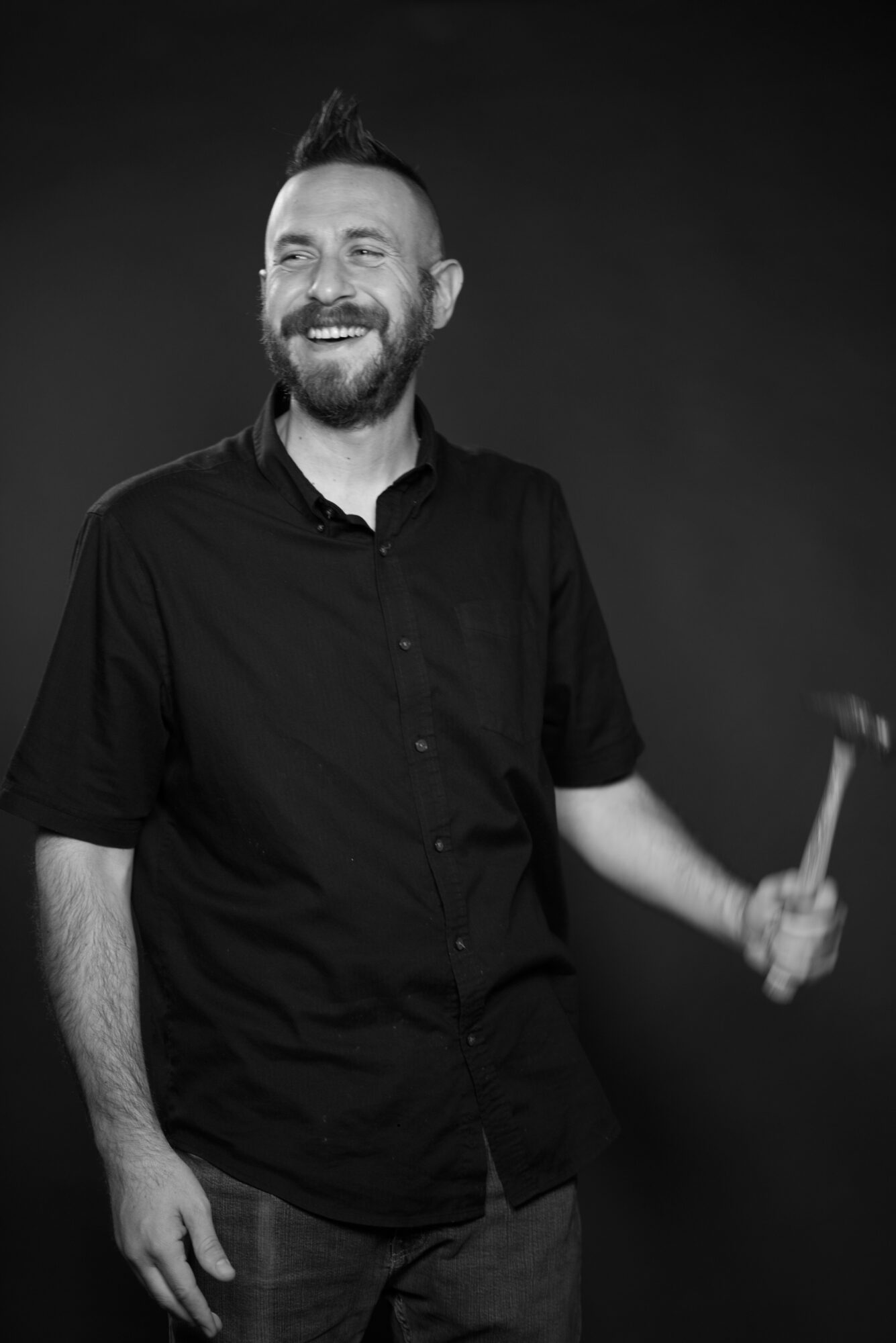
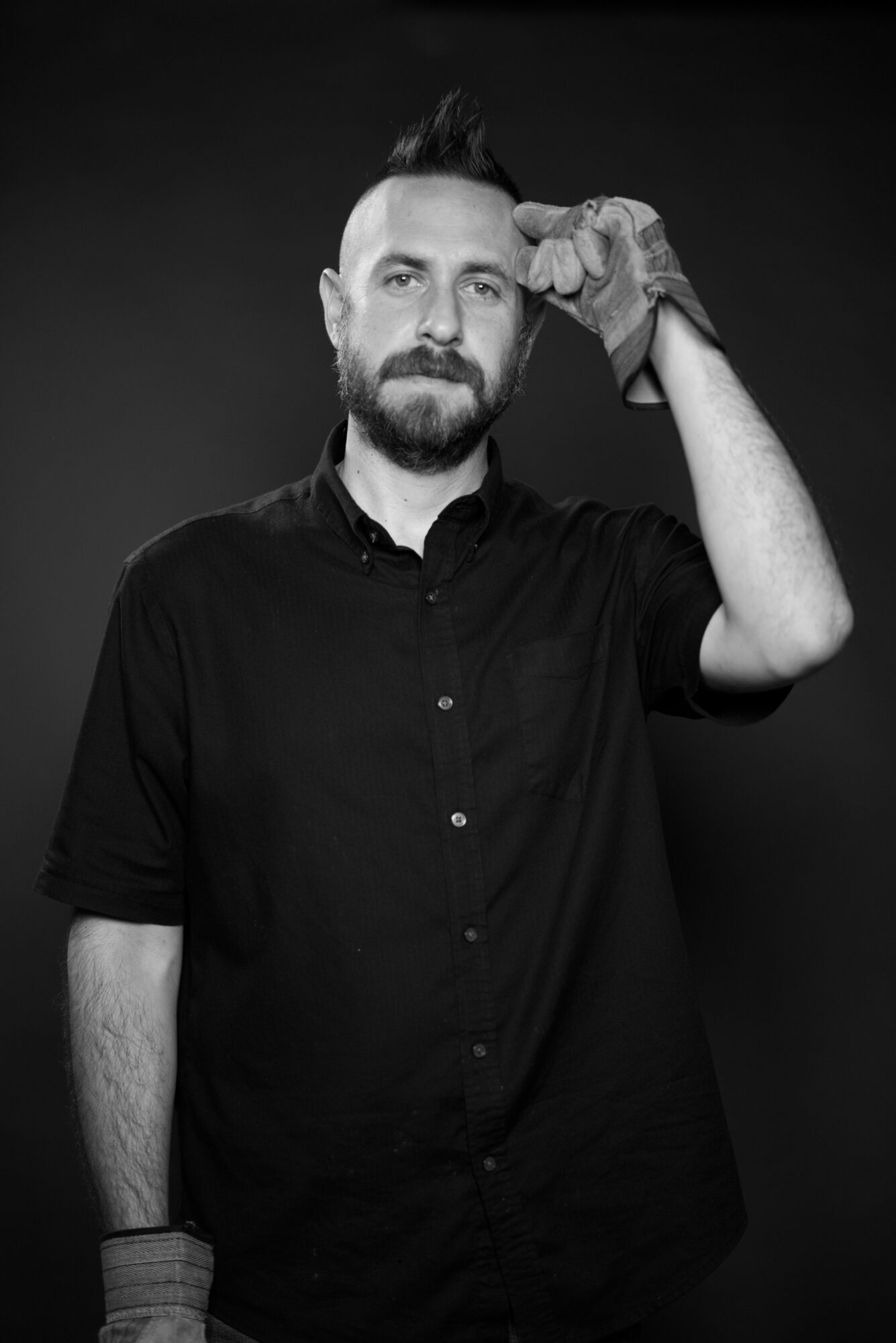
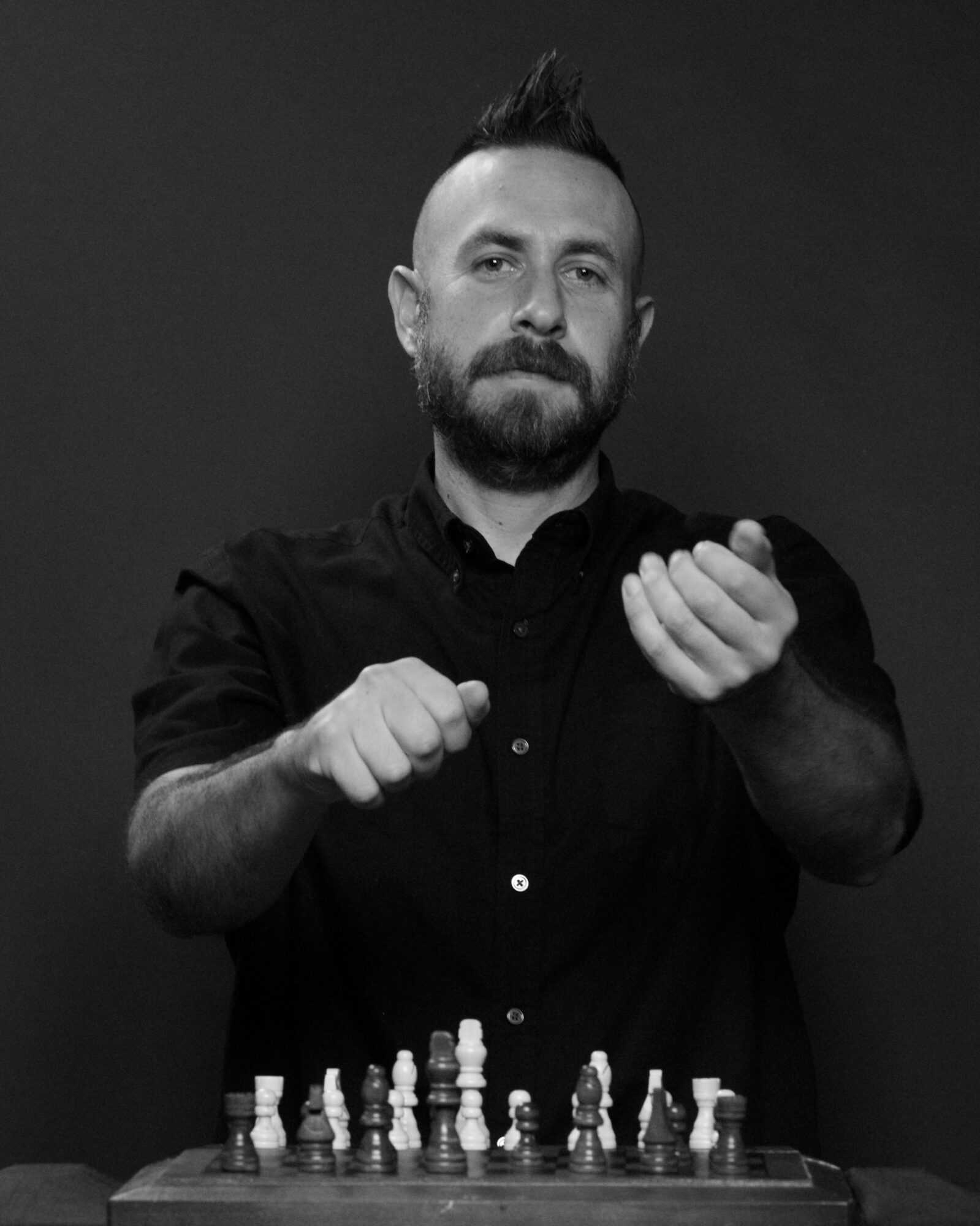
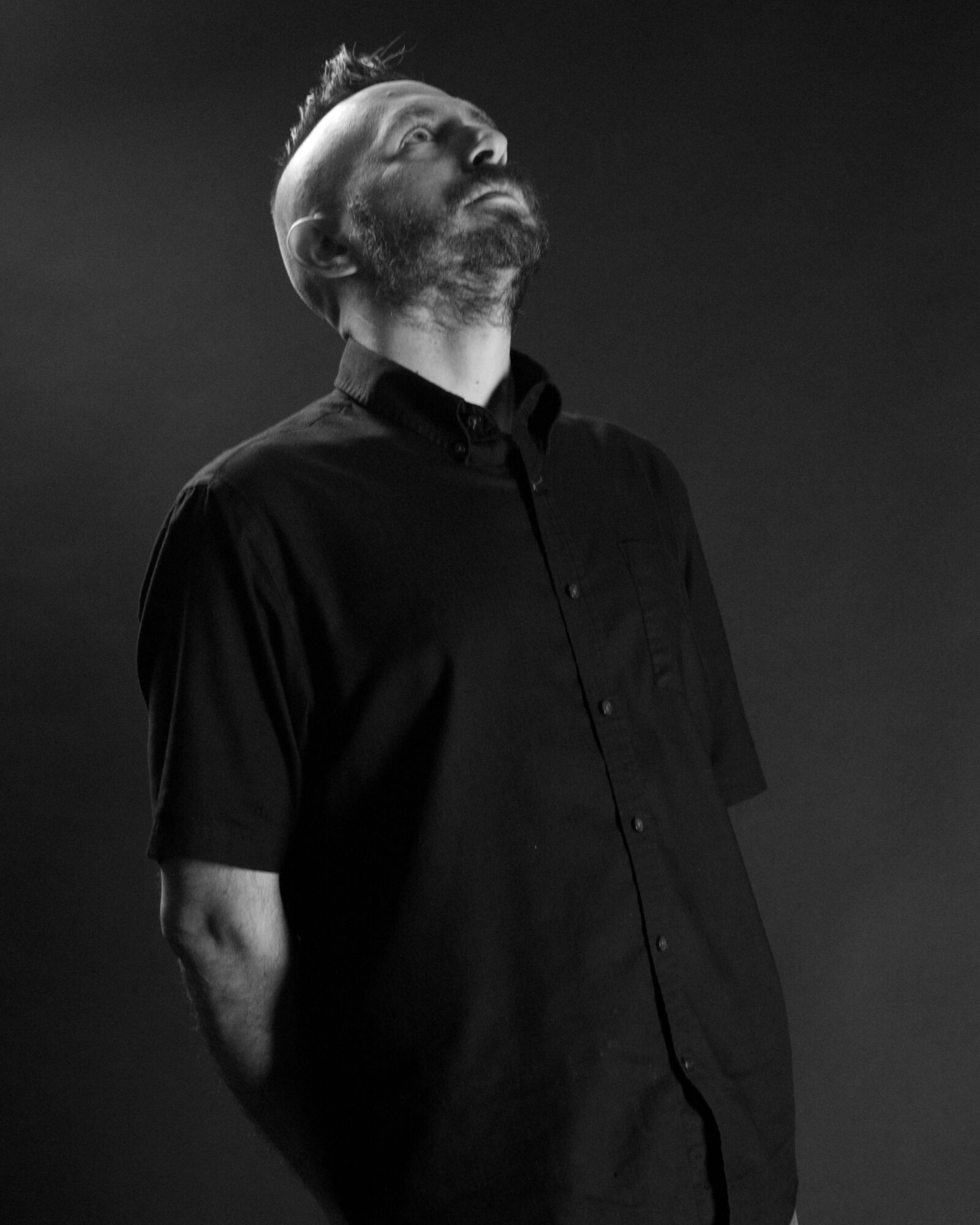
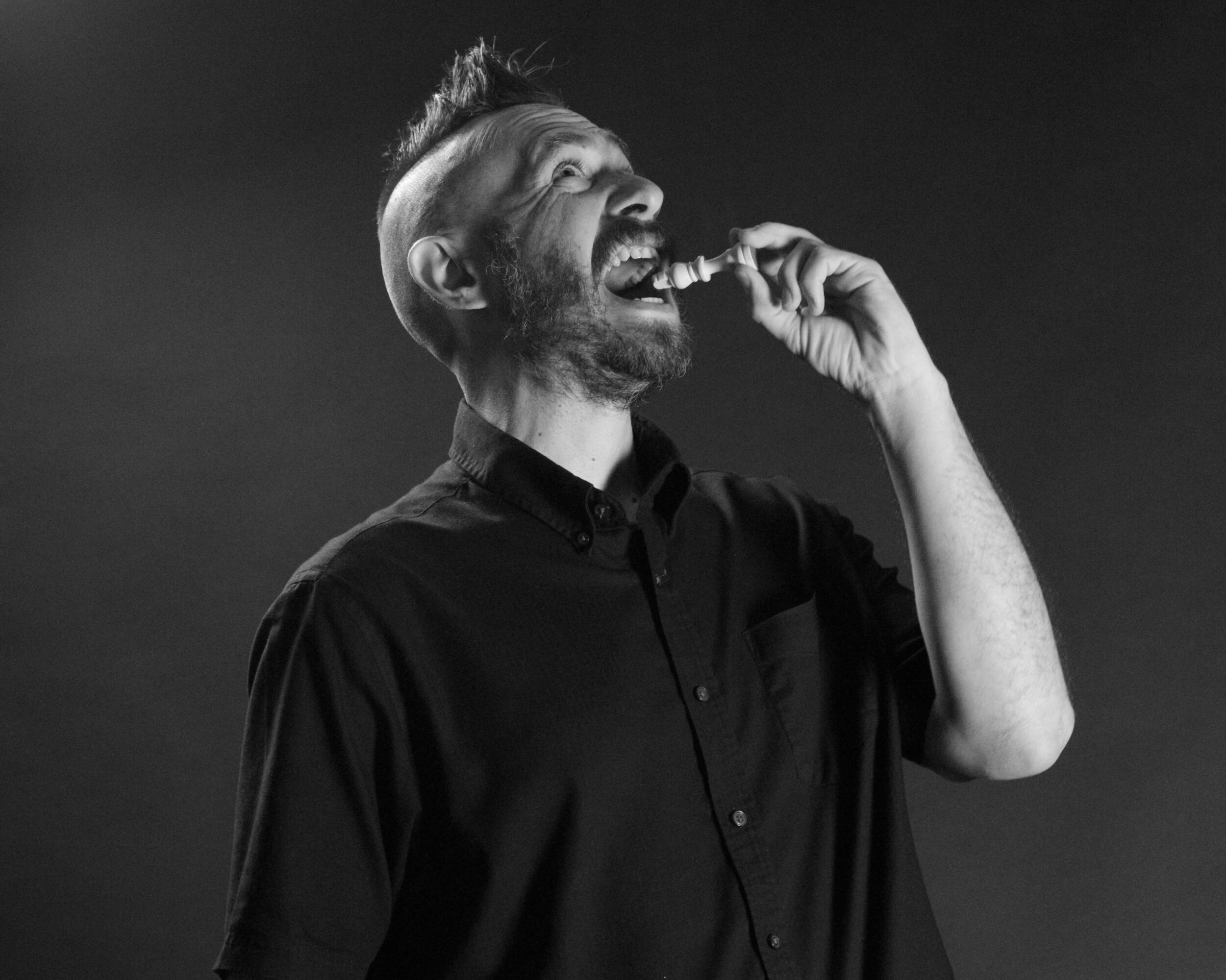
Image Credits
Photos by Alexis Rhone Fancher.














